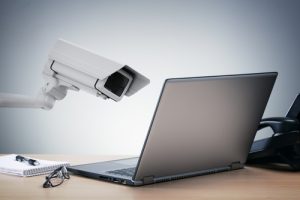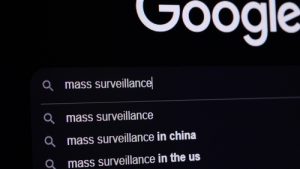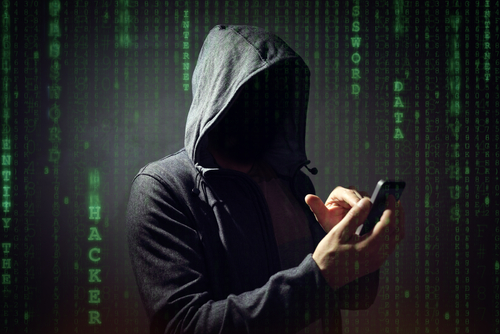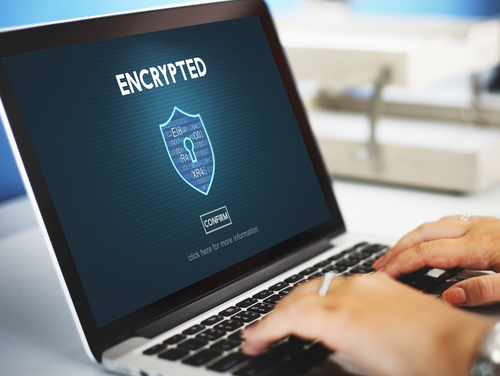You’ve probably noticed highly specific ads that seem to show up right after you’ve gone to a similar website. These ads are an example of how businesses and other entities can track your online activity. Even if you have nothing to hide, you don’t want just anyone to watch your every move online.
So, can a VPN prevent tracking? A VPN, or Virtual Private Network, reduces the risk of someone being able to track a person’s internet activity. Read on to learn more about how a VPN can give you more online privacy and its limitations.

Who Watches Your Online Activity?
It may be surprising to learn that several entities track your online activity. Internet Service Providers (ISPs), for example, know everything about your browsing history. ISPs can block certain websites at their discretion or even throttle your bandwidth.
If you’ve ever noticed that your internet seems slower right as an ISP is releasing a faster promotional deal, it may be no coincidence. ISPs throttle bandwidth to better distribute the speeds to all their users at high-frequency times and to convince customers to upgrade to faster speeds.
The government can, in turn, request the information that ISPs store to learn about your internet traffic history. In China, the government uses this power for censorship. You can imagine how this power can be used to spy on citizens and invade their privacy.
Advertisers also watch your activity online. Companies such as Google and Facebook track their users to serve them targeted ads. This may seem benign enough, but sometimes your targeted ads can even show up on the web pages of people who share the same device.
Of course, the most notable people who watch your activity online are hackers. Cybercriminals take advantage of public Wi-Fi spaces to monitor people’s data on insecure networks. They can even discover your passwords, usernames, and financial information.
With all these eyes on your data, you are probably looking for ways to better protect your privacy. VPNs can help. Although VPNs aren’t a blanket fix for online tracking, they do protect you and keep your internet traffic safer than a proxy server.
How Does VPN Mask Your Identity?
There are several ways that VPNs increase your security online. According to Statistica, 7 out of 10 Americans use a VPN for enhanced personal and business security. A VPN connection provides you with the ability to surf the internet while limiting how much third parties can track you. They achieve this by doing the following:
#1 Hides Your IP Address
Your IP Address gives websites and others a lot of information about you. Each computer has a unique IP Address, so it is like a digital fingerprint that others can use to find out information about you. Your IP Address can link you to your location.
By proxy, hackers can find out personal information like your name, phone number, and address. When you use a VPN server, your IP address shows up as the server you are connecting to instead of your real IP address. So, if you connect to a server in China, that will look like your location.
#2 Encryption
Another way that a VPN offers more cybersecurity to its users is through encryption. A VPN creates an encryption tunnel from your device to the VPN server. As your data goes to the server, the encryption software makes the information unreadable to outsiders. T
hen, the data arrives at its destination on the server, where it is decrypted. Different VPN providers offer varying levels of encryption. The most common is the Advanced Encryption Standard (AES). This is a military-level encryption protocol that is currently the most secure on the market.
How to Increase Your Security With VPN
Even though a VPN works to protect you against tracking, there is still a chance that someone could track you. Here are some ways that VPNs are still vulnerable to tracking and how you can decrease your risk of tracking.
#1 Malware
Malware is one way that hackers gain access to your devices. If you fall prey to a malware attack, it may give the hacker sensitive information like your IP address or password logins. Unfortunately, a VPN doesn’t prevent malware from giving out your personal information.
But, installing malware protection on your computer or investing in a premium VPN service that includes anti-malware software as part of its package will go a long way in keeping your connection secure. Make sure to always keep your antivirus protection up-to-date, as well.
Also, be sure to practice internet safety by never clicking on unfamiliar links or downloading content from unknown senders.
#2 Browser Fingerprinting
Websites create unique profiles about you based on details such as your operating system, installed software, time zone, screen resolution, and hardware specifications called browser fingerprinting. These programs can reveal a lot of information about you even if you are using a VPN.
If you disable JavaScript, this cuts off the code that websites use to detect this information about you. Plugins, fonts, and supercookies will be turned off. However, this may affect your web browsing history. You can also use the Tor Browser.
This standardizes browser characteristics and blocks JavaScript. These precautions will help you to keep your web browser more secure from prying eyes.
#3 Cookies
You’ve likely seen the annoying pop-up asking whether a website is allowed to use cookies. Cookies are files that help websites remember your preferences from previous visits. These cookies keep track of your cart history, mouse movements, and other behaviors.
To make sure that you are not being tracked on a website while using a VPN, be sure to clear your cookie cache before using a VPN, this will help to erase these personal indicators that make it easier for hackers to track you.
#4 DNS Leaks
Another way that your online activity may get exposed while you are using a VPN is if you do not set up your DNS correctly. This leads to your online web browsing history being leaked. When you install VPN software, it begins routing your DNS requests through the secured connection.
However, if that software isn’t installed properly or if your VPN isn’t completely protecting you, you could be carrying on as if you are protected when in reality, your connection is insecure. To prevent DNS leaks, make sure to follow all of the instructions for installing your VPN’s software, and to check for DNS leaks you can use websites like dnstestleak.com to see if your connection is compromised.
Does VPN Stop ISP Tracking?
ISPs may be able to tell that you are using a VPN. When they look at the connections you make through their servers, they can see the IP addresses and encrypted traffic, and figure out you are using a VPN. However, that doesn’t mean they can see what you are doing while you are online.
Since your data is encrypted, your ISP cannot see your browsing activity. The only thing your ISP would have access to is the VPN server IP address that you are connected to. If you want to hide that you are using a VPN, you can get an obfuscated server that acts as a camouflage.
There are certain VPN providers, such as Surfshark, who offer this as part of their paid service.
Does VPN Prevent Location Tracking?
When you connect to a VPN server, you appear to be connecting from that location. Many other people use this server at the same time, so even if someone narrowed down the IP Address of your VPN, it would be tricky for them to further indicate who the exact person using that server was.
As such, a VPN helps protect your location while you are online. However, it is important to note that free VPN services may be less reliable than more well-known paid services. A poor-quality VPN with low-grade encryption protocols may be less secure.
Now, if you choose to provide location information on websites or while using services on the internet, hackers and other entities can use that information to track you. So, always use caution when providing any personal information on social media or other websites and apps.
Additionally, if your VPN disconnects, others may be about to see your IP address. So, make sure you choose a reliable VPN service. Although free VPN services exist, a paid VPN usually has a better reputation, more reliable services, and better encryption.

Can Google Still Track You Using a VPN?
If you log into your Google account while using a VPN, Google will be able to monitor your browsing. Only your IP address will be hidden. However, if you do not log into your Google account, it will be much harder for Google websites to track you.
Using a Chrome browser puts you more at risk of Google tracking your internet history, so if you want to avoid this invasion of privacy, use another search engine.
Can the Government Track You Using a VPN?
Governments often require that ISPs log their customer’s online activity. Then, they will request this information and be able to have access to a user’s entire internet browsing history. In the US, ISPs are not required to keep logs, but the government can issue National Security Letters (NSLs) to request individual ISPs to cooperate with the government.
It’s unclear how many ISPs are required to cooperate in this manner. A VPN prevents your ISP from seeing what you are doing on the internet, which can prevent government agencies from tracking you if you are a part of mass government surveillance.
However, if the government wanted to they could break into your house and physically compromise your devices and routers. In that case, a VPN won’t protect you against that kind of targeted tracking.
Who Does VPN Protect Against?
Even if VPN isn’t perfect, there are still several ways that VPN protects you online. VPN users will be able to hide their IP addresses from P2P peers, which can prevent them from being able to track you. This makes VPN ideal for online gaming.
Additionally, if you use a business VPN, your employer tracks what websites you go to. But, if you use a private VPN while connected to your business’s internet, your employer will not be able to monitor your internet traffic.
VPN also protects you against cybercriminals on public Wi-Fi, so if you connect to an unsecured internet in a hotel or airport, using a VPN will keep hackers from spying on you.
How To Choose the Best VPN
There are a lot of VPN companies out there, but to choose a good VPN, you need to consider what they offer. For privacy, make sure to choose a VPN that has a no-logs policy and does keep users’ data. This will make it harder for third parties to get a hold of your information.
Additionally, seek out a reputable VPN that has a kill switch. A kill switch activates and blocks your device’s internet access if a VPN connection drops. This helps to protect you from sending data outside of the VPN tunnel.
Sekur’s Solution
If you’re looking for a reliable VPN service, Sekur prioritizes your privacy. With our 100% private platform, our Swiss server keeps your IP address anonymous online. With military-grade advanced encryption, you can navigate securely with SekurVPN. You’ll leave no trace of what data you’re transferring.
Our service is easy to use, set up, download, and tap, and a single license will work for all your devices. Not only do we provide excellent VPN usage, but we also have secure email and instant messaging.
Try out Sekur today and regain your privacy.
Conclusion
A VPN cannot completely protect you from being tracked online, but it can make it more difficult. Governments, Internet service providers, advertisers, and hackers can watch your Internet history to find out a lot of personal information about you.
However, a VPN puts up a layer of protection that makes it more difficult for entities to track you. A VPN hides your IP address and encrypts your traffic, but you need to choose a secure VPN company and pair your VPN with internet security best practices to protect your internet activity.
Our company uses proprietary technology with no open source to keep your security our top priority!

